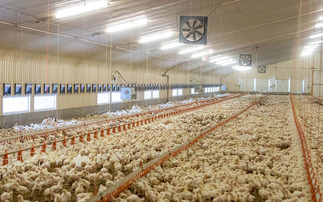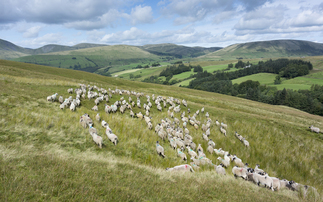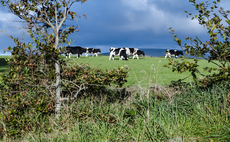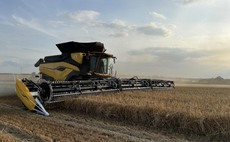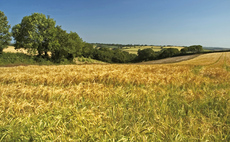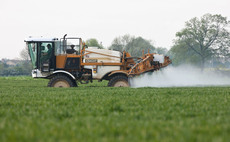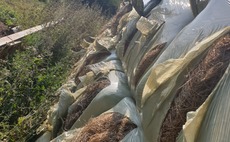
"I would say that the first reason to consider succession is because you have no doubt worked hard for what you have created, and indeed, the generation before likely did too."
Succession is an issue for most businesses which might mean for example, passing the business onto the next generation, selling to an outside buyer, or selling to management.
For agricultural businesses, which tend to be family-based, the question of succession can be more difficult.
Historically, there might have been a reluctance within farming to talk about succession, to consider one's mortality or the potential loss of capacity.
But in my experience, that seems to be changing.
The below is far from conclusive, but will hopefully give you food for thought, and a reason to go and speak to your private client lawyer.
Why consider succession?
I would say that the first reason to consider succession is because you have no doubt worked hard for what you have created, and indeed, the generation before likely did too.
Ensuring that passes on in the right way is likely to be important to you.
You also need to think about what happens if you lose mental capacity, and if someone needs to step in to keep the wheels turning.
Thinking about 'who', forms part of that succession discussion.
The last reason I want to mention here is tax, and in particular, Inheritance Tax (IHT).
IHT is highly political, and there have been discussions about reform and change for years.
Of course, a new Government brings with it the risk or opportunity of change to the tax environment.
Regular reviews and ensuring documents are up to date, will help to mitigate that risk to the business.
Business Structure
The vehicle used for your farming business is important not only in the context of taxation on income, but also for succession.
Many farming businesses farm in partnership, and here there is a need to make sure the partnership agreement, which you should have, is kept up to date and the following is considered:
- Capital entitlement and ensuring land capital is properly recorded regarding capital profits and losses
- What happens on death and mental capacity, and for example, permitted transfers and options to purchase
- What rights there are to withdraw capital
For those using a limited company, similar considerations apply to the Articles and/or Shareholders' Agreements.
In addition, you might consider the right to appoint replacement directors to represent your interest in the business.
As good as the business structuring might be, one of the biggest issues I now see following the death of a farming partner is with the bank.
In general, we want the business to be able to continue.
Hopefully the partnership agreement will allow for that.
However, as good as the agreement can be, it is important to confirm with the bank that the account itself can continue.
If the partnership is effectively dissolved in the death of a partners, that will likely result in the partnership bank account being frozen.
That can be disastrous for the business and family.
Wills and Lasting Powers of Attorney (LPAs)
The way I approach Will drafting is to look at what a client has, who they have, and what they want to do with those two things.
That helps in a variety of ways, including helping everyone to focus their mind on what we are passing on, where those assets are coming from, who is benefitting, and who might have an expectation of benefit.
It also allows us to look at IHT.
Very often, the next generation includes those who are farming and those who are not.
There is a need to consider 'fairness and financial equality' as priorities; and then, the right Will to achieve your personal and business aims.
However, it does not stop there because we need to ensure that the Will works with the business documentation, which may control, for example, who you can leave your interest in the business to, or whether an asset held as part of the partnership can be withdrawn and given to a non-farming child.
As a result, it makes sense that the two are considered together.
The importance of LPAs cannot be underestimated for ensuring the business can keep ticking over, and so there is a practical benefit.
Again, the business documentation should work with the LPA, and vice versa, and this includes considering whether you want the same person dealing with personal and business affairs.
And effectively, whether a Business LPA is needed.
Tax planning and reviews
The taxes that frequently come up include, IHT, Capital Gains Tax, Income Tax, Stamp Duty Land Tax, Corporation Tax and VAT.
That is an awful lot of tax and so collaborative approaches to succession is needed.
Business accounts can be overlooked.
They often stay private until someone dies, at which point they are sent to HMRC as part of an IHT return.
On that basis, ensuring they are prepared with IHT in mind is important.
Tax planning tools should be considered as part of a review, and this includes the structure and vehicle as discussed.
But in addition, trusts and family investment companies may also factor in.
Reviews are the next piece of the puzzle.
Wills, LPAs, trusts, partnership agreements and so on are not supposed to be put in a drawer and forgotten about.
They are supposed to be capable of moving on with time, as personal, financial or taxation changes require.
Generally, I recommend a review every five years, but that may change with certain life events.
Accountants and lawyers work well to ensure all angles are covered.
Conversations
Conversations about succession have a time and place, particularly in a family farming context.
They can help manage the expectations of the next generation; but also give confidence for investment.
I am an advocate of open conversations, had at the right time, where everyone is clear on the purpose of the discussion, which is not an invitation to draft the Will.
Of course, it is also important to mindful of what is said to whom, as it can lead to claims.
READ NOW: Sarah Spencer, land manager at Balance Power: "How farmers can win from Labour's net zero vision"







